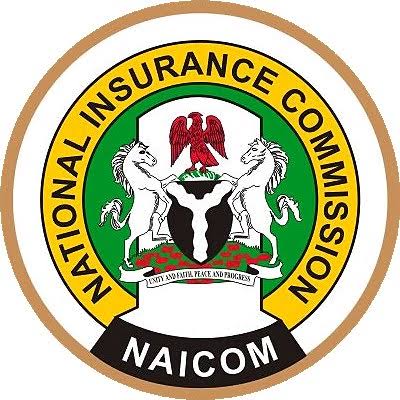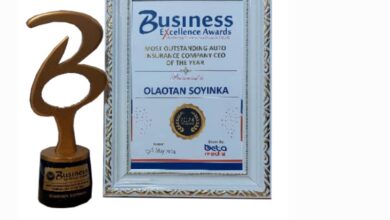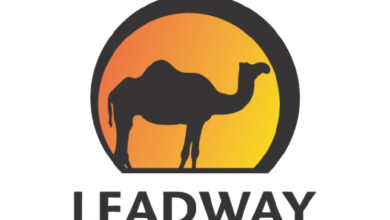Claims Settlement Issues – Activities of NAICOM Complaints Bureau

By A. I Adamu LLB, BL, LLM
Introduction
Definition of Terms:
Claims: Claims are the attachment of the insurer’s liability arising from its contractual obligation to the insured, third party or beneficiary of the insurance contract.
Complaint: Complaint is an expression of grievances arising from repudiation, declination, failure (perceived failure), refusal or delay of the insurer in meeting the claim’s obligation to its insured, third party or beneficiaries of the insurance contract.
Complaint Bureau: The complaint bureau is the department established by the Commission in line with the provision of section 8 (a) of the National Insurance Commission Act 1997 and charged with the responsibility of handling complaints submitted by members of the public against an insurer, reinsurer, insurance broker or loss adjuster (insurance institution)
Legal Features of Claims
Classification: Life/General; Total/partial/ex gratia/accommodation
Validity: Existence of valid policy; Premium paid in advance – section 50 (Insurance Act 2003); Existence of subject matter; Defined risk, location of risk.
Genuine: No fundamental breach of material; nature; Not fraudulent; Occurrence and proof the loss.
Admissibility of Claims
It is valid; It is genuine; The loss is a covered risk and reported; The complete supporting documents are submitted; there is no fundamental breach of material nature and not amounting to fraud
Statutory Protection To Policyholders
Statutory provisions impacting on claims/claims management: Section 1 of the National Insurance Commission Act 1997 established a body to be known as the National Insurance Commission. The principal object of the Commission under section 7 of the Act is to ensure the effective administration, supervision, regulation and control of insurance business in Nigeria
Section 7(h) of the Act provides as a function of the Commission ‘the protection of policyholders, beneficiaries and third parties of insurance institutions’
Section 8 (a) of the Act empowers the Commission to establish a bureau which complaints against an insurer, reinsurer, insurance broker or loss adjuster may be submitted by members of the public
Section 86 of the Insurance Act 2003 charged the Commission with the responsibility for administration and enforcement of the provision of the Act
Section 8(1)(m), 20(1) provision for unexpired & claims) 24 (solvency/provisions for outstanding claims) S.32 (4c)(priority order), 70 on settlement of admitted claim not later than 90days etc. request for payment from the statutory deposit, S78(a) SIDF to pay admitted claim not paid for reasons of insolvency/cancellation etc.
General powers of the Commission on claims under NAICOM Act 1997, Insurance Act, 2003 and Part 3 of the Market Conduct and Business Practice Guidelines for Insurance Institutions 2015
Dispensing with police report where there is sufficient evidence of accident involving vehicles and where death or serious bodily injury to any person involved is occasioned Section 71
The insured’s right to request the Commission to effect payment of claim from the statutory deposit of the company, where it remains unpaid under section 70(1)(a) of the Act-
Suspension of payment of claims and insurer’s inability to meet its obligation as a ground for regulatory intervention- S.41(a) of NAICOM Act 1997
Time to settle claims-Section 70
Where liability is accepted-90 days after discharge
Where liability is declined, deliver a statement in writing stating reasons for declining not later than 90 days from the date of reporting
Statutory Protection of Insurer
Limitation of right to repudiate claim on the basis of breach and insurers duty to settle only to the extent would have suffered if there is no such breach-S.55(3) Insurance Act 2003.
The insurers’ option to elect to reinstate property damaged by fire or pay commensurate claim to loss suffered-S.66(3)
The necessity of a police report in case of a claim arising from Car theft-S.71(3)
Power of regulator to issue a directive for the purpose of protecting policyholder or potential policyholder against the risk that the insurer may be unable to meet its liabilities or fulfill reasonable expectations of policyholders or potential policyholder-S40 1997 Act.
Criminal Liability For False Insurance Claims
Section 52 prescribes Criminal liability for false Insurance Claims: Liability of Officers, Directors, Partners etc. who recklessly, negligently willfully approves or pays or is connected with the approval or payment of a claim that is false -Section.52(1)(b) NAICOM Act, 1997 (Fine not exceeding N250,000 or 2 years imprisonment or both)
Receives or participate in sharing for personal gratification any money, property or benefit toward or after payment or approval of the false claim. Section 52(1) (c )
Any insurance institution that fails to report claim that he knows to be false –Section 52(2) (N500,000)
Any person who knowingly, recklessly, negligently, willfully or otherwise makes an insurance claim which is false Section 52 (3) (N250,000 or 3 years imprisonment or both)
Claims Settlement Issues
Overview From Three Perspectives:
Insurer
Insolvency: Institution Strategy; Technical Breaches and Environmental Factors
Liquidity: Marketing, Pricing, Actuarial and Valuation
Underwriting Slips: Presale, Inspection, and Underwriting Deficiencies
Claims Management Issues: Internal Claims Policy, Pre/Post Loss Inspection/Processes/Attitude
Insured
Wrong Product Procured: Marketing/Agency Issues and Environmental Factors
Marketing/Sales/ Agency Issues: Marketing, and Pricing, Actuarial Valuation
Wrong Information On The Risk/Product Assessment/Valuation: Non-Execution Of Proposal Forms, Direct Purchased insufficient Information On Policy Scope, Under Insurance, Double Insurance and Contribution
Non-Compliance With Policy Terms And Claims Process: Breach Of Fundamental Terms, Non-Compliance With Other Policy Terms, Notification/Post Risk Notification and Documentation
Third-Party/Beneficiaries
Breach Of Fundamental Terms By The Policyholder: Marketing/Agency Issues, and Environmental Factors
Definition Of a Third Party Under Third Party Motor Vehicle Act 1963
The insured is one party, the insurance company is the second party, and the person you (the insured) injure who claims damages against you is the third party. Section 145(g) “third party” includes the Government – National Insurance Commission (NAICOM). As per the Motor Vehicles Act, third-party insurance is mandatory. As regards the comprehensive insurance, which covers theft and damage among others, the vehicle buyer would have the option to buy it for one year or three years in the case of cars and five years in case of two-wheelers.
Activities Of Complaints Bureau
The Complaint Bureau Unit is established in furtherance of the powers of the Commission under section 8 (a) of the National Insurance Commission Act 1997 to which complaints against insurer, reinsurer, insurance brokers or loss adjuster may be submitted by members of public
The activities of the Bureau are categorized into 3 phases; Claims management framework; Complaints handling management processes and procedures; Complaints management operations
The Bureau is responsible for the implementation and institutionalization provisions of all primary and secondary legislation that are developed to provide for coordinated steps, policies and procedures for the management of insurance claims by the insurance institutions.
The enabling legal frameworks are: Primary legislations- NAICOM Act, Insurance Act, Third Party Motor Vehicle Act: Subsidiary legislations – Market Conduct and Business Guideline 2015, and Circulars
Statutory Consumer Protections
Section 6 of NAICOM Act, 1997 bestows on the Commission the responsibility for effective administration, supervision, regulation and control of insurance business in Nigeria.
Section 7 places responsibility on the Commission to ensure adequate protection of strategic Government assets and properties.
Section 8 empowers the Commission to establish a Bureau to which complaints against any member of the insurance institution may be submitted by members of the public.
Section 17(1)(C) Establishes a ‘Security and Insurance Development Fund’ to assist in the development of the insurance industry in Nigeria.
Section 78 of the Insurance Act 2003 provides for the utilization of the fund to: Payment of admitted claims which could not be paid due to insolvency or cancellation of the company; To compensate innocent third party disabled or killed by uninsured or unidentified vehicles.
Section 70 of the NAICOM Act stipulates that where a claim is made in writing, the insurer shall where it accepts liability settle the claim not later than 90 days after issuance of discharge voucher and where remained unpaid, the Commission has the power to pay from the company’s statutory deposit
Right of The Insurer
Right to receive material information before assumption of the risk and notice of material changes thereafter; Prompt notification of claims and submission of claims supporting documents; Receipt of renewal request and premium prior to expiration of preceding cover
Protection in Case of Failing Companies
The Insurance Act allows a portion of the levies collected from insurance institutions to be used for payment of any claims admitted by an insurance company where such claims remain unpaid by reason of insolvency or cancellation of the insurer’s license.
Motor Accident Insurance Compensation Scheme (MAVICS) provides compensation to individuals injured or killed by uninsured or unidentified drivers.
Section 17 of NAICOM Act, 1997 and Section 78 Insurance Act, 2003 states that where an insurer is licensed, it must deposit 50 percent of the minimum capital with the CBN, which does add an element of policyholder protection in the event of non-payment of claims.
Rights of Insured
Right to adequate information in proposal form which must be readable, eliciting such information considered as material by the insurer -information not elicited is deemed immaterial
Right to the intermediary of his choice
Right to receiving renewal policy documents not later than 60 days after the payment of premium and prompt renewal notice upon renewal
Right to be informed of material changes in the organization, removal or changes in its staff dealing with underwriting/claims
Right to have his claims settled promptly
Right to fair treatment and confidentiality of information obtained from him
Right to have his complaint heard fairly and expeditiously and
Right to have the right information and in case of repudiation of claims reasons and grounds sufficiently explained.
Subsidiary Legislation –Guidelines
Part 3 of the Market Conduct and Business Practice Guidelines for the Insurance Institutions 2015 (MCBPG) provides a self-explanatory guidance note for the claims management by insurers.
The guideline requires each insurer to develop, document and implement claims management policies and procedure for all lines of business.
The guidelines takes into consideration international standard and best practice and address the inter-related aspect of market conduct and internal controls in claims management functions.
Insurers shall include as part of policies and procedure, settlement timelines for claims and ensure that the timelines reflect the principle of good market conduct.
Claims Management Guidelines – Claims Procedure
Every insurance institution shall: Have a defined claim settlement procedure, clearly defined and communicated to the insured
Set out timelines in its policy and procedure manual to settle admitted claims
Have a fair and transparent claims handling and dispute resolution procedure
Maintain written documentation on its claim handling process
Inform claimants about procedure, formalities and timeframes for settlement of claims
Provide claimants with timely information about the status of their claim
Ensure that Assessors and Adjusters are given independence to operate
Explain to its clients their obligation to notify claims promptly and disclose all material facts
Give prompt advice to the clients on any requirements concerning claims
Ensure that claims settlement process is handled fairly, promptly and efficiently and in accordance with the terms of the contract and company policy
Timely and accurate information be provided to policyholders or claimants at all times
Claims Management Guidelines – Claim Notification
Claims notification may be in line with the policy conditions, provided that the claimant shall use any fast means of communication to the insurer, designated contact person or through the intermediary
Acceptable notification can be through:- Direct reporting, Telephone call, Text message, Email; Fax, Letter, Use of Social Media or website or any other form of technology with wide usage.
Where the mode of communication used lacks written evidence, the insurer shall inform the claimant of the need to follow up such communication with a letter and completion of the appropriate claims form
Where notification of the claims is through an intermediary, such notification shall immediately and not later than two days be transmitted to the insurer
When a claim is reported, the insurer, broker or agent shall make available an appropriate claim form with clear instruction on how the form shall be completed. This shall be done within two working days of receiving notifications of a claim
When a loss is reported, the insurer, broker or agent shall advise the policyholder or claimant to cooperate in the investigation by providing the insurer with all relevant information to ensure timely processing of the claim
An insurer shall respond promptly to notification of a claim. The insurer shall acknowledge receipt of the claims form within two working days
The insurer shall inform the policyholder or claimant if an independent loss adjuster will be engaged to conduct a survey and/or assessment of the loss. The insurer shall hire the Adjuster within two working days from the date of receipt of completed claim form accompanied by all relevant documents
Within five working days of receipt of the assessment report, the insurer shall notify the claimant as to its acceptance or rejection of the claims
Claims Management Guidelines – Claims Processing
On receipt of a claim, the insurer shall maintain a claim file which shall contain all relevant details to facilitate the processing of the claim
If it is determined that the claim is not covered by the policy or denied, the insurer shall notify the policyholder in writing stating the policy provisions, conditions or exclusion on which the claims is denied
The insurer shall not deny a claim without a reasonable and comprehensive investigation
The insurer shall inform the policyholder/claimant when it decides to appoint an independent expert
The insurer shall implement a management reporting system to track the timelines of claim settlement and other pertinent information. There shall be periodic reports at minimum to include: The age analysis of outstanding claims; Claims reported but not yet documented or adjusted; Claims reported, adjusted but not yet accepted; Claims accepted but not yet paid, and Adequacy of claims reserving
Claims Management Guidelines – Claim Settlement
When insurer makes an offer of settlement, it shall disclose to the claimant/policyholder the basis used for the offer
Subject to allowable deductions, penalties, the insurer shall settle a claim for less amount
After acceptance of the claim, the insurer shall cause a discharge voucher to be issued not later than five days from the date of acceptance
In case of unresolved issues with other co-insurers, the Lead insurer shall take steps to settle the claim while it’s pursuing resolution of the issues or subrogation
Internal Control for Claim Management Guidelines
The complete record of each claim transaction with evidence shall be maintained by companies/insurers
An insurer shall have documented internal policies and procedure for the fair, prompt and efficient handling of claims
The insurers shall ensure that its staff are aware and adhere to these procedures
The information in the policies and procedure manuals shall at a minimum contain clearly defined levels of authority; Claims procedures, including loss estimation and investigation procedure; Procedure for rejecting claims; Dispute resolution procedure; Method for monitoring compliances and claim processes and procedures; Segregation of duties in the claims department; Written internal policies and procedures for combating fraud associated to claims. Insurer shall have the procedure to detect and prevent fraud; The Board shall receive reports on a quarterly basis on claim management.
Claims Management Guidelines – Complaints and Dispute Resolution
Section 3.7 prescribes that each insurance institution shall establish well-documented policies, procedures and processes for complaint and dispute management to ensure that situations are resolved promptly and fairly.
At minimum, the procedure shall include: Acknowledgement of complaint within two working days; Details of how complainant will be kept informed of the status of their complaint; Provision for Arbitration Clause in the policy document
Information to complainants on how and when to recourse to the Commission’s Complaints Bureau as alternative dispute resolution or litigation
Keep a record of each complaint received whether intimated by phone or in writing
Insurance institutions shall ensure that complaints are dealt with expeditiously.
It shall be the responsibility of the Top Management to ensure the management of all complaints.
Bureau’s Processes And Procedure takes care of the following: Complaints Receipt And Reviews; Referral And Feedback; Analysis And Engagements; Onsite Visit And Verifications and Adjudication.
The Bureau’s Complaints Management Operations include dash Board Operation; Post Adjudication Issues; Request For Exercise Litigation Option; Opportunity For Speedier Costless Resolution and Window For Fraudulent Opportunities.
Conclusion
Efficient and effective management of the stakeholders’ grievances is the cornerstone for the realization of corporate goals and objectives. But then where the foundation is faulty, what can a righteous do?
Being a paper presented at the 2021 Retreat organized by NAICOM for Insurance and Pension Journalists in Lagos





